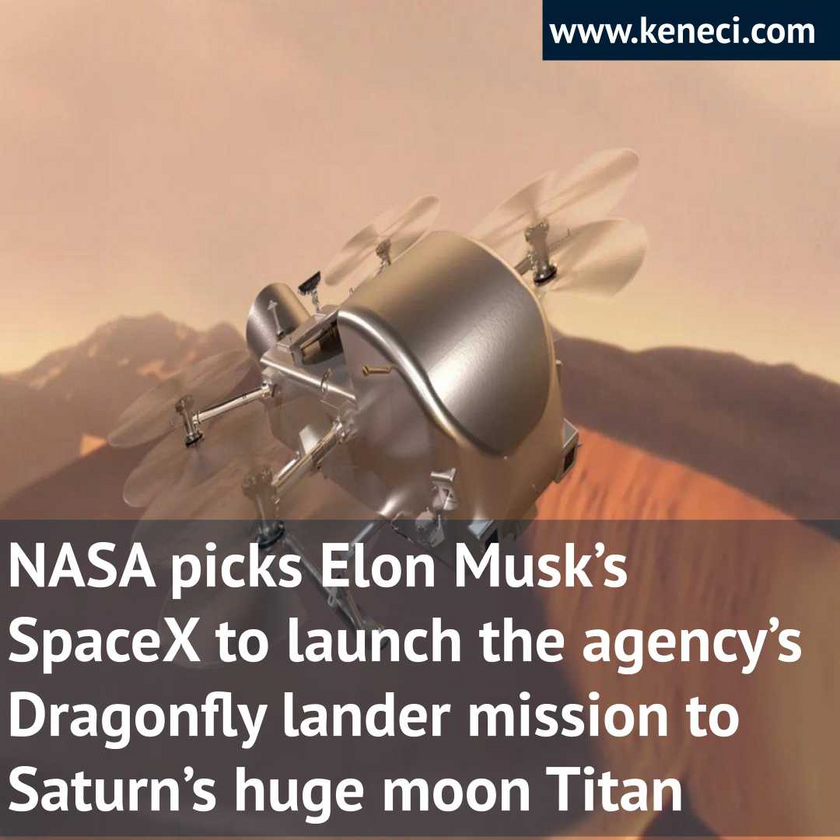NASA on Monday announced that SpaceX will launch the agency's $3.35 billion Dragonfly mission that will investigate the life-hosting potential of Saturn's huge moon Titan. The Elon Musk company's Falcon Heavy rocket will launch the nuclear-powered car-sized rotorcraft during a three-week window in July 2028.
Dragonfly lander will spend six years making its way to Titan, the second-largest moon in the solar system (after Jupiter's Ganymede). The rotorcraft will operate for about 2.5 Earth years on Titan's surface, flitting from place to place to get an in-depth look at a variety of landscapes.
Titan hosts seas and lakes of hydrocarbons, making it the only body beyond Earth known to host stable liquids on its surface. Some scientists think the frigid satellite may be capable of supporting life -- perhaps on its alien surface or in its suspected subterranean ocean of liquid water. This is what Dragonfly is designed to investigate.
"With contributions from partners around the globe, Dragonfly’s scientific payload will characterize the habitability of Titan's environment, investigate the progression of prebiotic chemistry on Titan, where carbon-rich material and liquid water may have mixed for an extended period, and search for chemical indications of whether water-based or hydrocarbon-based life once existed on Saturn’s moon," NASA officials wrote in Monday's update.
SpaceX has launched some of NASA's high-profile science missions. Falcon Heavy also launched the agency's Psyche asteroid probe and Europa Clipper spacecraft, in October 2023 and October 2024, respectively.















